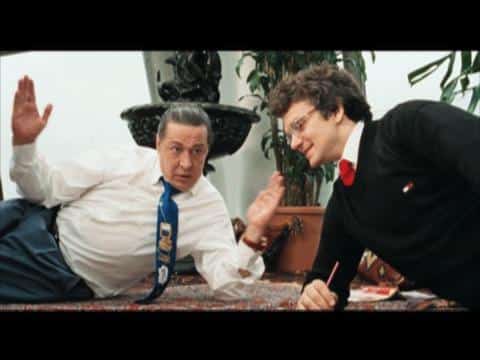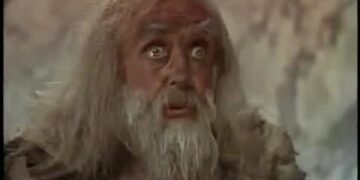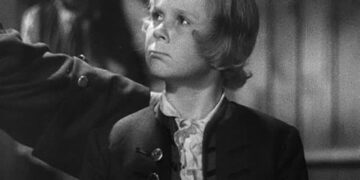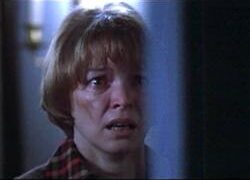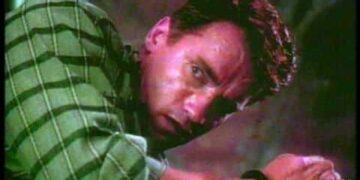Welcome to this comprehensive journey into Victor Pelevin’s ‘Generation P’. As an iconic piece of post-Soviet literature, the book presents a satirical portrayal of Russia’s transition from a communist to a capitalist society.
The novel, published in 1999, is a thought-provoking exploration of the influence of Western advertising culture on the Russian population.
This exploration is carried out through the eyes of its protagonist, Babylen Tatarsky, who becomes a successful copywriter in the burgeoning advertising industry.
In this article, you will not only receive an in-depth book summary but also character analysis, and a comparison between the novel and its 2011 film adaptation by Victor Ginzburg.
This article is designed to be a comprehensive guide for readers and viewers alike, providing a thorough understanding of the novel and film’s key themes, characters, and symbolism.
Victor Pelevin: An overview of his works
Victor Pelevin, born in Moscow in 1962, is one of the most celebrated contemporary Russian writers. He is best known for his unique blend of satire, philosophy, and science fiction. His works often delve into post-Soviet Russian society and its interaction with Western culture.
His unique, satirical take on Russian society and politics has earned him a reputation as a postmodern literary prankster.
Pelevin’s works are characterized by their surrealism, philosophical undertones, and biting social commentary.
His other notable works include ‘Omon Ra’, ‘Chapayev and Void’, and ‘The Life of Insects’. However, ‘Generation P’ stands as one of his most significant works, offering a scathing critique of the modern Russian state and its consumerist culture.
Book Summary: Unlocking ‘Generation P’
‘Generation P’ follows the life of Babylen Tatarsky, a young Russian man who becomes deeply involved in the world of advertising.
The story unfolds as Tatarsky navigates the chaotic and often absurd world of post-Soviet Russia, struggling to make sense of his identity and place in society.
The novel is divided into three parts. The first part introduces us to Tatarsky’s early life and his subsequent entry into the advertising industry.
The second part delves deeper into his career as an ad man and his eventual disillusionment with the industry. The third and final part takes a surreal turn, exploring themes of identity, reality, and the power of illusion.
Character Analysis: Who’s Who in ‘Generation P’
The protagonist, Babylen Tatarsky, is a complex character. He is both a product and a critic of the system he works within. He is intelligent, creative, and deeply philosophical, often questioning the nature of reality and his place within it.
His journey through the advertising world and his subsequent disillusionment serve as a metaphor for the larger societal changes happening in post-Soviet Russia.
Other significant characters in the novel include Tatarsky’s mentor, the enigmatic Morkovin, and his colleague and friend, Gireev.
Each character represents different facets of the new Russia, shedding light on the complexities and contradictions of this transitional period in Russian history.
The Curious Differences between the Novel and the 2011 Film Adaptation
Victor Ginzburg’s 2011 film adaptation of ‘Generation P’ is faithful to the novel in many ways. However, there are intriguing differences between the two.
For instance, the film version simplifies some of the novel’s more complex philosophical ideas and focuses more on the dark comedy and absurdity of Tatarsky’s experiences.
Additionally, the film introduces a romantic subplot that is absent from the novel, adding a new layer to Tatarsky’s character. These differences demonstrate the distinct ways in which literature and film can tell the same story, each medium with its strengths and limitations.
A Parent Guide to ‘Generation P’
‘Generation P’ is a book and film that deals with complex themes and includes explicit content. It is best suited for mature audiences, and it’s recommended that parents preview both the book and the film before sharing them with younger viewers or readers.
The story explores the darker side of advertising, consumer culture, and political manipulation, which may be difficult for younger audiences to fully understand.
Despite its mature themes, ‘Generation P’ can serve as a valuable tool for sparking discussions about media literacy, consumer culture, and the influence of advertising.
It is an excellent resource for teaching about the post-Soviet era in Russia and the broader global impacts of capitalism.
When and Where ‘Generation P’ Takes Place: Film Locations
‘Generation P’ is set in the 1990s, during the chaotic transition period following the collapse of the Soviet Union. The story takes place primarily in Moscow, the epicenter of Russia’s cultural and economic transformation. The film version of ‘Generation P’ was shot on location in Moscow, capturing the city’s unique blend of old and new, East and West.
Unforgettable Quotes from ‘Generation P’
‘Generation P’ is filled with memorable quotes that encapsulate the novel’s satirical edge and philosophical depth.
Here are a few:
- “In Russia, you don’t actually have to be a poet to be a poet.”
- “Advertising is the true poetry of the contemporary world.”
- “Reality is just a crutch for people who can’t cope with drugs.”
Soundtrack Analysis: The Music of Kaveh Cohen, Michael David Nielsen, Alexander Hacke, and Sergei Shnurov
The film adaptation of ‘Generation P’ features a diverse soundtrack that reflects the eclectic nature of the story. The score, composed by Kaveh Cohen and Michael David Nielsen, provides a moody and atmospheric backdrop to the film’s visual style.
Also noteworthy is the contribution of Alexander Hacke and Sergei Shnurov. Their music brings a unique flavor to the film, blending traditional Russian music with modern electronic sounds, mirroring the cultural fusion that is central to the story.
Curiosities and Trivia about ‘Generation P’
Did you know that the title ‘Generation P’ is a reference to the Pepsi Generation, a term used in Pepsi’s marketing campaigns? This is just one of many interesting tidbits about ‘Generation P’.
The novel and film are filled with cultural references and inside jokes, making them a treasure trove for trivia lovers.
Dress Like ‘Generation P’ Characters: Tips for Cosplay
If you’re a fan of ‘Generation P’ and want to express your fandom through cosplay, here are a few tips.
Dressing like Babylen Tatarsky would involve a mix of 90s fashion and business casual attire. Think oversized suits, bold colors, and quirky accessories.
The Ending of ‘Generation P’ Explained
The ending of ‘Generation P’ is as surreal and ambiguous as the rest of the story. It leaves readers and viewers with more questions than answers, prompting us to question the nature of reality and the power of illusion.
Exploring the Possibility of a Remake, Sequel, or Spin-off
Given the novel and film’s cult status, it’s natural to wonder about the possibility of a remake, sequel, or spin-off.
While there have been no official announcements, the rich world of ‘Generation P’ certainly offers plenty of potential for further exploration.
Other Media by Victor Ginzburg
Victor Ginzburg, the director of the ‘Generation P’ film, has a diverse filmography. His other works include ‘The Weather Is Good on Deribasovskaya, It Rains Again on Brighton Beach’ and ‘Moon Rainbow’. If you enjoyed ‘Generation P’, you might want to check out these films as well.
Similar Media to ‘Generation P’
If you’re looking for books and films similar to ‘Generation P’, consider works such as ‘Fight Club’ by Chuck Palahniuk or ‘American Psycho’ by Bret Easton Ellis.
These works also offer a satirical take on consumer culture and the modern world.
Other Notable Works by Victor Pelevin
In addition to ‘Generation P’, Victor Pelevin has written numerous other novels and short stories.
Some of his most notable works include ‘The Life of Insects’, ‘Chapayev and Void’, and ‘The Helmet of Horror’.
Engaging Book Club Questions for ‘Generation P’
Discussing ‘Generation P’ in a book club can lead to engaging and thought-provoking conversations.
Here are a few questions to get the discussion started:
- How does ‘Generation P’ critique consumer culture?
- How does the novel portray the transition from communism to capitalism in Russia?
Video Games Inspired by ‘Generation P’
While there are no video games directly inspired by ‘Generation P’, the novel’s themes of consumer culture and manipulation of reality can be found in games like ‘The Stanley Parable’ and ‘Bioshock’.
Travel Guide: Visit ‘Generation P’ Locations
If you’re a fan of ‘Generation P’ and find yourself in Moscow, consider visiting some of the locations featured in the novel and film.
These include iconic sites like the Red Square and the Bolshoi Theatre.
Conclusion: The Lasting Impact of ‘Generation P’
‘Generation P’ offers a unique glimpse into a pivotal moment in Russian history.
Its satirical take on consumer culture and the power of advertising remains relevant today, making it a must-read for anyone interested in contemporary literature.
Whether you’re reading the novel or watching the film, ‘Generation P’ is sure to leave you with plenty to think about.


